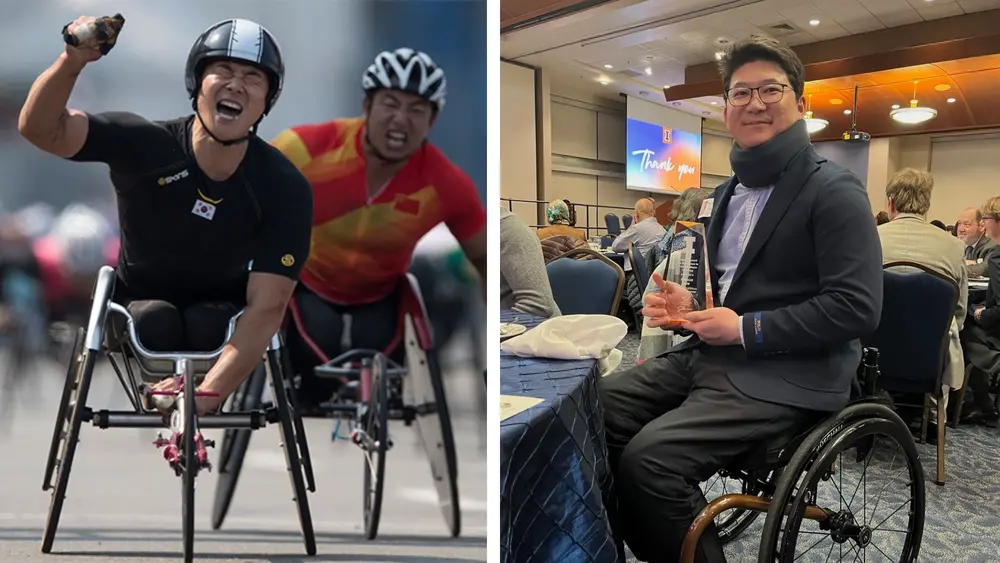
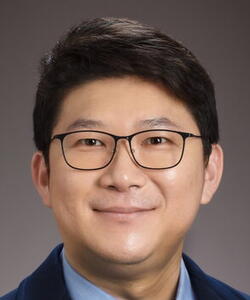
Gyudae “GD” Kim never planned on becoming a geographer. Nearly 20 years ago, he was serving his mandatory military service in South Korea when a sudden injury left him paralyzed. At the time, he wasn’t considering graduate school, let alone an academic career. He was just trying to figure out how to move forward.
That turning point came in a veteran’s hospital, where another veteran introduced him to adaptive sports. It was an invitation that shifted his outlook. “I didn’t enjoy my life around that time,” Kim recalls. “But they showed me what the real world had, such as wheelchair sports.” What began as a way to rebuild his body also helped him rebuild his sense of possibility.
Racing toward a new future
Before turning to academia, Kim spent years navigating the complexities of the private military sector, an experience that still informs how he sees space, power, and risk. “Living those experiences made me sensitive to how infrastructures and borders come together,” he said. That perspective now underpins his research on political geography and nuclear geopolitics: how technologies and states shape each other through systems, territories, and the everyday lives they touch.
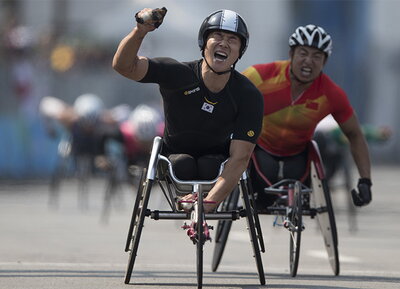
Wheelchair racing offered Kim a way to channel determination into a familiar passion. Before his injury, Kim loved running marathons. Wheelchair racing gave him a way to reclaim that passion. He trained daily, loving “the sunshine and the sweat,” working hard to earn a place on the Korean Para National Team, competing at three Paralympic Games: Beijing 2008, London 2012, and Rio 2016, winning four bronze medals along the way. A signature moment came at the 2013 World Para Athletics Championships in Lyon, France, when he surged ahead to capture gold in the 800m. Three years later, a bronze in the Rio marathon proved life-changing.
“That was the moment. That was the money,” he said. “After that, major marathons began inviting me. I made some money, but I spent it on education.”
Finding a new home at Illinois
Reinvesting in himself led Kim to Illinois, where he could balance elite training and serious scholarship. “Before I came to Illinois, my life was all about wheelchair racing,” he said. “I’d met some student-athletes from the University of Illinois. They said that if you come to the university, you could study and in the meantime, you can race.” He joined the Illinois Wheelchair Track and Road Racing team, a powerhouse program that has trained multiple Paralympians and major marathon champions.
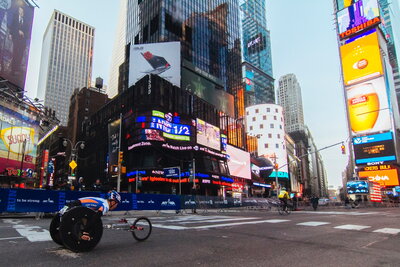
Once he settled in Champaign in 2013, Kim’s academic focus began to sharpen. He has since earned degrees in environmental economics and geographic information science and is now pursuing his PhD in geography. At the core of his research is a belief that nuclear technology didn’t just alter geopolitics. It transformed the very structures of states.
“We often think of the atomic bomb as a weapon, but I’m interested in what happened behind the scenes,” he explained. “The bomb didn’t just emerge out of the state; it shaped the state itself in many ways.”
For Kim, the link between his past and present is clear. “As a Navy veteran, a wheelchair user, and now a researcher, I think living these experiences made me sensitive to many things,” he said. “It motivates both my teaching and my research. I want to show how geography can address big global issues like nuclear power or even conflicts, but also speak to everyday struggles with a disability. It’s about connecting the globe with the person.”
Teaching as a calling
Even with his accomplishments as an athlete, Kim, now retired from competitive racing, lights up when he talks about teaching. He has earned a place on the List of Teachers Ranked as Excellent twice (Fall 2023, Fall 2024), and in 2025 received both the LAS and Campus Awards for Excellence in Undergraduate Teaching, two of the highest honors available to graduate instructors at Illinois. However, for Kim, recognition isn’t what matters most.
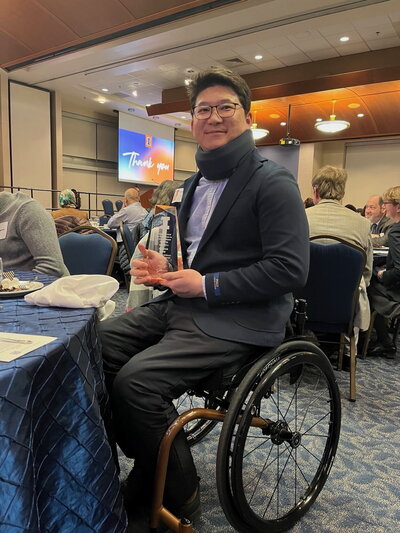
“Teaching has been the highlight of the past couple of years. I was really honored to be listed and receive the campus and college awards, but what I remember most was the small moments,” he said. “When a student tells me they see the world differently after class, or when a discussion takes off and students challenge each other.”
He works hard to ensure students know he’s available, both in and outside the classroom. “Graduate school can feel isolating; it’s so important to reach out to mentorship and build community with your peers,” he says.
What’s next
Kim is excited about the next stage of his dissertation, digging into how nuclear technology transformed state power. He also hopes to create new courses at Illinois on geopolitics and technology.
His advice to those navigating challenges is hard-earned but straightforward: “It’s easy to get lost in the workload, but pacing yourself for the long run, making time for rest, just being human. It will make you stronger as a student and a scholar. Balance matters.”
For Kim, though, the heart of his work always comes back to the classroom. “I love to learn alongside my students,” he said. “I learn from them every semester, because I’m still a student too.”